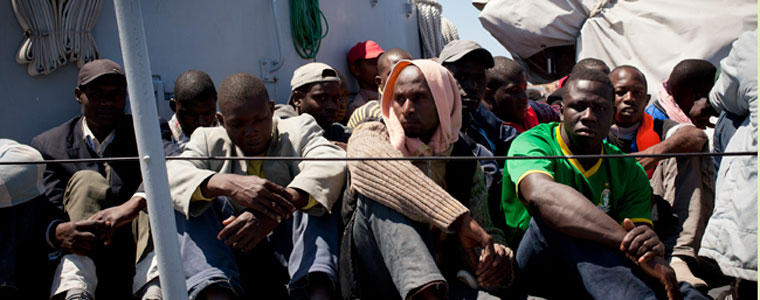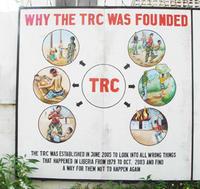Truth Commission Digital Collection
The United States Institute of Peace’s Truth Commissions Digital Collection is part of the Margarita S. Studemeister Digital Library in International Conflict Management. The collection contains profiles of truth commissions and substantive bodies of inquiry from nations worldwide - offering general background information on the composition of each body, links to the official legislative texts establishing such commissions, and each commission's final reports and findings.

The United States Institute of Peace’s Truth Commissions Digital Collection is part of the Margarita S. Studemeister Digital Library in International Conflict Management.
The collection contains profiles of truth commissions and substantive bodies of inquiry from nations worldwide - offering general background information on the composition of each body, links to the official legislative texts establishing such commissions, and each commission's final reports and findings.
Truth Commissions
Commissions of Inquiry
| Algeria | Brazil | Burundi |
Ethiopia (Special Prosecutor's Office) |
| Chile 2003 | Nepal 1990 | Sri Lanka | Honduras 93 |
| Cote d'Ivoire | Peru 1986 | Zimbabwe | |
| Rwanda 1993 |
You can also use the Truth Commission Digital Collection filter to search for the truth commissions and commissions of inquiry you are most interested in.
About Truth Commissions
Truth commissions are established to research and report on abuses of human rights and humanitarian law over a particular period of time in a specific country, or in relation to a particular conflict. Truth commissions are diverse and their mandates are often adapted to the specific needs of the society. Typically they are convened temporarily in order to allow victims, their relatives and perpetrators to give evidence of human rights abuses or other criminal transgressions - providing an official forum for their accounts. In most instances, truth commissions are also required to provide recommendations on steps to prevent a recurrence of past abuses. They are created, vested with authority, sponsored, and/or funded by the government of the country.
 Truth commissions are non-judicial bodies, but in some cases are granted the ability to refer case information to the courts or tribunals. Generally, the recommendations of a commission push for reforms within the government and other social structures that perpetuated abuse. Recommendations may also advocate for reparation to victims, propose memorialization efforts and reconciliation plans, and implicate the bodies or groups most responsible for any abuses committed. In some cases individual perpetrators may be named. In some instances, commissions have been forced to end their mandates prematurely due to political opposition or lack of funding.
Truth commissions are non-judicial bodies, but in some cases are granted the ability to refer case information to the courts or tribunals. Generally, the recommendations of a commission push for reforms within the government and other social structures that perpetuated abuse. Recommendations may also advocate for reparation to victims, propose memorialization efforts and reconciliation plans, and implicate the bodies or groups most responsible for any abuses committed. In some cases individual perpetrators may be named. In some instances, commissions have been forced to end their mandates prematurely due to political opposition or lack of funding.
About Commissions of Inquiry
Closely related to truth commissions are commissions of inquiry. Compared to truth commissions, commissions of inquiry have a more limited scope. Their investigations may for instance be limited to specific events, or specific geographic areas of a country.
In addition, the Truth Commissions Digital Collection portrays a number of investigative bodies organized not by governments, but by civil society or by international organizations. We have included a number of such unofficial truth-seeking bodies as commissions of inquiry.
How to Find a Truth Commission
The Truth Commission Digital Collection Filter allows you to search for the truth commissions and commissions of inquiry you are most interested in. If you select ‘Truth Commission’ from the menu of publication types, the website will show the full list of commissions included in the collection in reverse-chronological order, along with a brief overview of their mandate. You may also navigate directly to the country of your choosing above.



